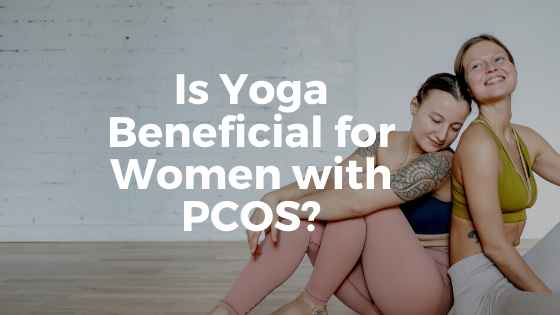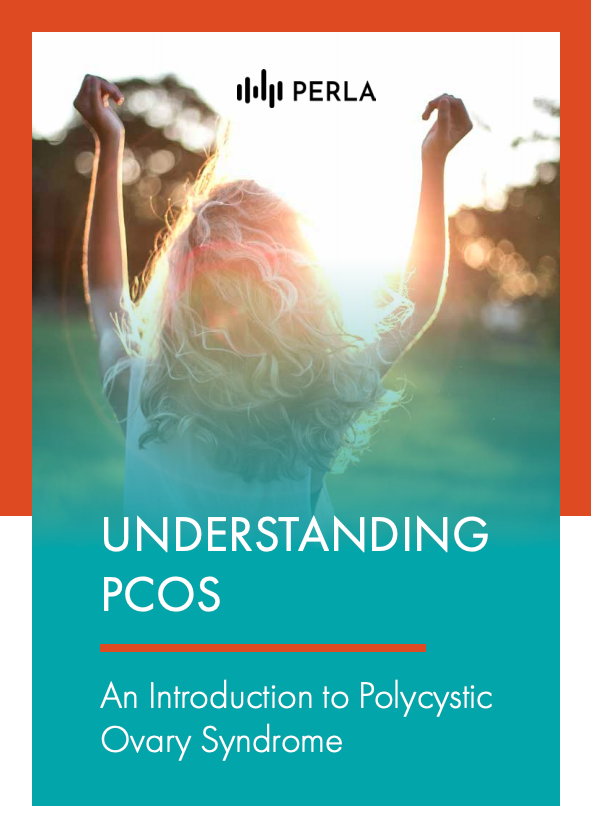From improving heart health to relieving anxiety, the benefits of yoga are far-reaching and well known. Studies have shown that it may also help with PCOS. Here’s an overview of what yoga is and how it could benefit you.
What is Yoga?
Yoga needs no introduction. But all those definitions can be confusing. Is it an exercise? Is it a religion? A philosophy? If you’re trying to search for the origins of yoga, you’ll encounter concepts that are hard to grasp. In fact, early teachings had little to say about yoga postures—the yoga we are most familiar with nowadays.
Modern yoga is focused on physical techniques, not on philosophies. So when we think of yoga, we think casually of poses or asanas (in Sanskrit). But asanas are just a small aspect of the wide practice of yoga.
Patanjali, an Indian scholar, wrote the first comprehensive text on yoga practice. In this ancient text called Yoga Sutras, he described the eight limbs or foundations of classical yoga: 1,2
- Yama (Restraints): rules or goals on how to ethically interact with others.
- Niyama (Observances): deals with how you relate and treat yourself.
- Asana (Postures): a steady and comfortable position that prepares the body for sitting meditation.
- Pranayama (Breathing): helps to steady the mind and turn it inward.
- Pratyahara (Withdrawal): the highest control of the senses and withdrawal from sense objects.
- Dharana (Concentration): focusing on one thing and getting rid of distractions of the mind.
- Dhyana (Meditation): an uninterrupted flow of soft but steady concentration.
- Samadhi (Absorption): the yogi and object of focus become one and transcend oneself; a state of bliss or pure consciousness.
In simple terms, yoga is a system of physical and mental practices that can lead to a state of higher consciousness.3 Yoga is a certain way of being. The breathing, the poses, the meditation, diet and lifestyle changes, how you treat yourself, and the world around you—are all part of the practice of yoga.
Yoga as Treatment
In the field of medicine, yoga is recognized as a mind-body therapy that can help build strength, flexibility, mindfulness, calmness, and a sense of empowerment. It promotes cardiovascular and respiratory function, and can relieve anxiety, depression, and chronic pain, and has the potential to improve overall well-being.4
The practice of yoga has evolved and created many different styles. For example, you can choose one style that focuses on helping you relax (restorative yoga) or one that strengthens the bones and ligaments (Yin yoga). The beauty of yoga is that it is a practice for everyone. Whatever your age, background, health status, belief system, or body type, there is some form of yoga you can benefit from.
Benefits of Yoga for PCOS
Because PCOS is a heterogeneous disorder, meaning each patient may show different sets of symptoms, it may be beneficial to look into a holistic approach that considers both the physical and mental aspects of your well being. But can yoga help you for this? Here’s what science says about yoga for PCOS.
1. Yoga may reduce testosterone levels
A recent study indicates that mindful yoga practice may help in managing PCOS.5 Researchers randomly assigned 22 women (aged 22-43 years) to mindful yoga therapy or a control group with no intervention. Mindful yoga classes, which involves awareness of the body’s posture and breathing, lasted an hour and were performed three times a week for three months.
At the end of the trial, the intervention group had lower free testosterone, dehydroepiandrosterone, and adiponectin (regulates glucose and lipid metabolism) levels. They also scored lower on the anxiety and depression scales.
2. Yoga can relieve stress and anxiety
Yoga is known to help with stress and anxiety by lowering cortisol levels and regulating the activity of the parasympathetic and sympathetic nervous systems.6 In addition, it has been shown to decrease inflammatory markers such as C-reactive protein.
During stress exposure, the hypothalamo-pituitary-adrenal (HPA) axis is activated and the brain raises the stress level cortisol. Several studies suggest that yoga modulates HPA axis function to reverse the detrimental effects of stress, anxiety, and depression.7
3. Yoga may also regulate hormones and menstrual cycles
In a randomized control trial comparing conventional exercise to yoga in adolescent girls with PCOS, the yoga group performed sun salutation, postures, breathing, and relaxation for a total of 90 one-hour sessions. The exercise group, on the other hand, did walking, sitting, and standing exercises without yoga or breathing exercises.
After 12 weeks, girls in the yoga group had lower testosterone, luteinizing hormone, and Anti-Müllerian hormone (AMH).8 The yoga group also reported greater improvement in emotional disturbances, body hair, and menstrual problem compared to the exercise group.
4. Yoga may improve metabolic markers
When tested for metabolic markers, the adolescent girls in the yoga group had improved glucose, insulin, and lipid values including insulin resistance compared to the physical exercise group.9 Independent of weight and body mass index, yoga was found to be more effective than conventional exercise in improving cholesterol and insulin values in women with PCOS.
Tips for Beginners
- Don’t push yourself too far. Yoga is about listening to your body. If you experience pain while attempting a pose, your body is telling you to ease up a bit.
- Use props or supportive tools. You don’t need fancy equipment or accessories to practice yoga, but some props can make a pose more accessible.
- Set up a relaxing yoga space in your home. You can practice yoga almost anywhere, but it can be rewarding to have a quiet and private space that you can decorate with candles, plants, or oil diffuser.
- Wear something comfortable. Yoga is usually practiced without socks or shoes. All you need is a comfortable outfit that allows a full range of movement; wear leggings, a sports bra, or any workout clothes.
Sources:
- Simpson D. The Truth of Yoga: A Comprehensive Guide to Yoga’s History, Texts, Philosophy, and Practices. North Point Press, A Division Of Farrar, Straus, And Giroux; 2021.
- Basavaraddi I. Yoga: Its Origin, History, and Development. www.mea.gov.in. Published April 23, 2015. https://www.mea.gov.in/search-result.htm?25096/Yoga:_su_origen
- Manoj Sharma, MBBS, Ph.D. Yoga. eMedicineHealth. Published February 26, 2019. https://www.emedicinehealth.com/yoga/article_em.htm
- Woodyard C. Exploring the therapeutic effects of yoga and its ability to increase the quality of life. Int J Yoga. 2011;4(2):49-54. doi:10.4103/0973-6131.85485
- Patel V, Menezes H, Menezes C, Bouwer S, Bostick-Smith CA, Speelman DL. Regular Mindful Yoga Practice as a Method to Improve Androgen Levels in Women With Polycystic Ovary Syndrome: A Randomized, Controlled Trial. The Journal of the American Osteopathic Association. Published online April 14, 2020. doi:10.7556/jaoa.2020.050
- Bongiorno PB. Affective Disorders. Textbook of Natural Medicine. Published online 2020:1063-1081.e7. doi:10.1016/b978-0-323-43044-9.00142-4
- Azami M, Shohani M, Badfar G, et al. The effect of yoga on stress, anxiety, and depression in women. International Journal of Preventive Medicine. 2018;9(1):21. doi:10.4103/ijpvm.ijpvm_242_16
- Nidhi R, Padmalatha V, Nagarathna R, Amritanshu R. Effects of a Holistic Yoga Program on Endocrine Parameters in Adolescents with Polycystic Ovarian Syndrome: A Randomized Controlled Trial. The Journal of Alternative and Complementary Medicine. 2013;19(2):153-160. doi:10.1089/acm.2011.0868
- Nidhi R, Padmalatha V, Nagarathna R, Ram A. Effect of a yoga program on glucose metabolism and blood lipid levels in adolescent girls with polycystic ovary syndrome. International Journal of Gynaecology and Obstetrics: The Official Organ of the International Federation of Gynaecology and Obstetrics. 2012;118(1):37-41. doi:10.1016/j.ijgo.2012.01.027


